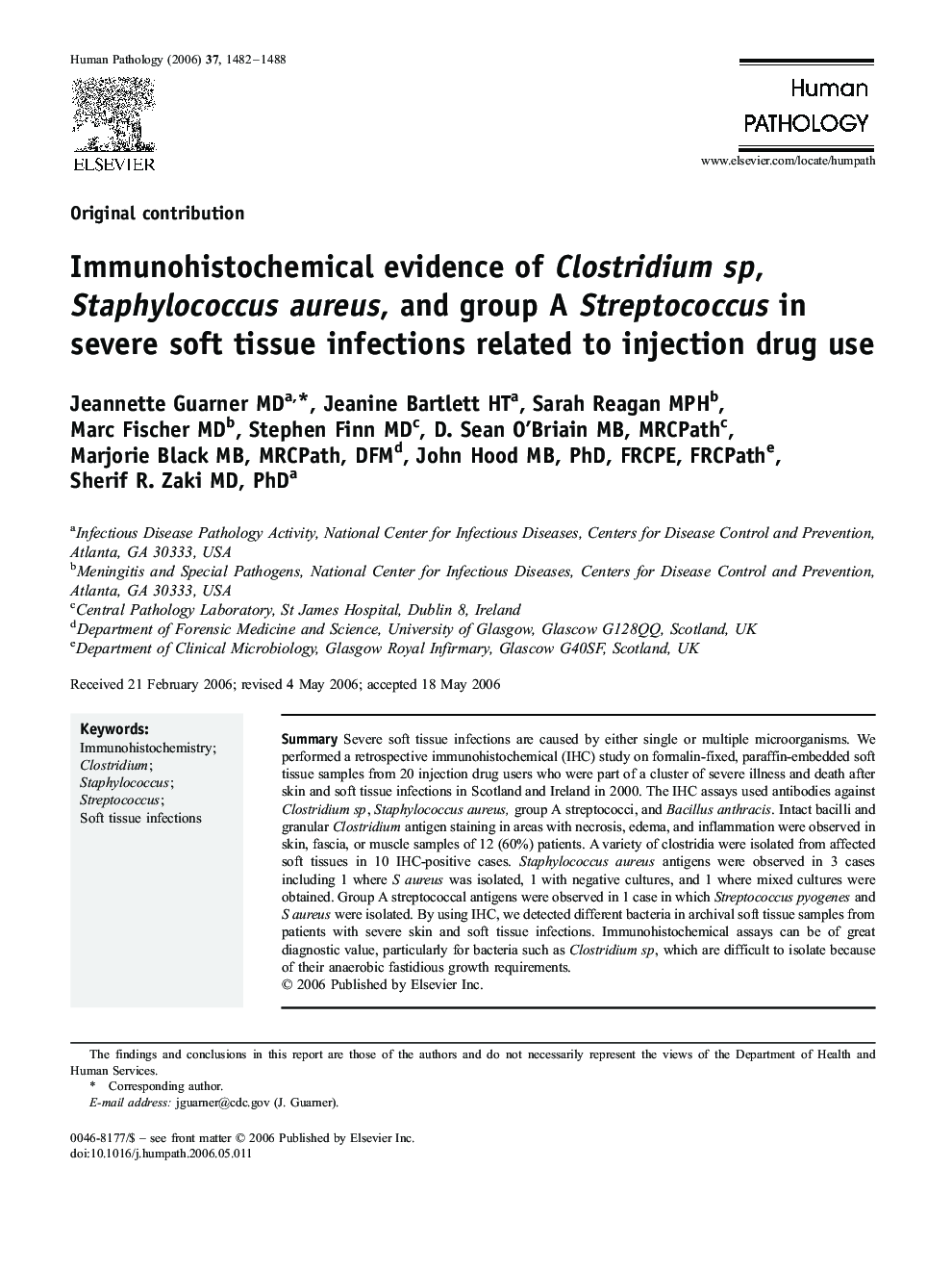| Article ID | Journal | Published Year | Pages | File Type |
|---|---|---|---|---|
| 4135078 | Human Pathology | 2006 | 7 Pages |
SummarySevere soft tissue infections are caused by either single or multiple microorganisms. We performed a retrospective immunohistochemical (IHC) study on formalin-fixed, paraffin-embedded soft tissue samples from 20 injection drug users who were part of a cluster of severe illness and death after skin and soft tissue infections in Scotland and Ireland in 2000. The IHC assays used antibodies against Clostridium sp, Staphylococcus aureus, group A streptococci, and Bacillus anthracis. Intact bacilli and granular Clostridium antigen staining in areas with necrosis, edema, and inflammation were observed in skin, fascia, or muscle samples of 12 (60%) patients. A variety of clostridia were isolated from affected soft tissues in 10 IHC-positive cases. Staphylococcus aureus antigens were observed in 3 cases including 1 where S aureus was isolated, 1 with negative cultures, and 1 where mixed cultures were obtained. Group A streptococcal antigens were observed in 1 case in which Streptococcus pyogenes and S aureus were isolated. By using IHC, we detected different bacteria in archival soft tissue samples from patients with severe skin and soft tissue infections. Immunohistochemical assays can be of great diagnostic value, particularly for bacteria such as Clostridium sp, which are difficult to isolate because of their anaerobic fastidious growth requirements.
